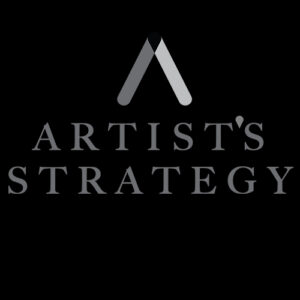
From the second you started acting school, you’ve been told everything about the seemingly all-important senior showcase. In fact, even to this day, many aspiring stars choose their school based on whether or not it has a showcase. These days, acting schools are showcasing in LA, NY, Chicago, DC and many other US cities. The showcases are so popular that adult actors well out of school are paying good money to participate in similar opportunities.
But the pressure we feel and expectations we have around these showcases can ruin an acting career before it even has a chance to get going.
The problem with the actor showcase is that it perpetuates the same disempowering fantasy that we’ve been told is true for all of us: get an agent or manager, begin auditioning immediately, book a few theatrical shows, move onto ongoing film and television projects, and watch your acting career flourish.
“But I thought the showcase was an opportunity to get in front of potential reps and secure representation—so how is that ruining acting careers?”
If we are led to believe that the showcase is our one and only opportunity to sell ourselves, we are being led to slaughter. It’s not that the showcase is unimportant. It’s that we’re not taught how to leverage the broader opportunity that surrounds the showcase.
While some of us may snag some initial interest after the showcase, most actors leave this chapter walking into the open industry and not knowing what to do next. Instead of a stepping stone, the showcase experience represents the first ding to our morale. Those who fail to secure ongoing representation often descend into inactivity and torture themselves with doubts about whether they’ve made the right choice, whether they should go back to grad school for an MFA, whether they should move across the country or quit acting as a career altogether.
We’re all aware of the endless time we spend picking material, ironing out the logistics of the showcase, and deciding which outfits we’re going to wear.
But what if, instead, we spent our valuable time:
I’m very much aware that this goes against the conventional wisdom. We’re essentially told to stay in our lanes and not to be too “pushy”. But remember one thing: When it comes to representation, you would be paying them. They work with and for you. This is your business and there will always be a difference between acting as a hobby and acting as a career. An acting career takes focus, determination, and active follow through. A hobby takes low-risk chances.
This can cause immense pressure and stress, and can lead to disappointment if success isn’t achieved. However, it’s important to recognize that the showcase should be viewed as one of many stepping stones towards your ultimate career goals, rather than a single opportunity that will determine your future.
Rather than relying solely on the actor’s showcase to propel your career forward, develop a robust strategy based on other efforts to support your overall acting career. This should include building a financial plan for a secondary income stream, developing a strong sense of brand and potential marketing strategies, and creating a “who’s who” alongside a cultivation plan for relationships you know are key to making next steps happen. These efforts can help you create a more sustainable plan just in case you don’t become world famous after a single showcase.
The showcase is a great tool for getting your name out there, but it’s just one part of the equation. It’s important to remember that success in the acting world takes time, and that there are many different paths to success. By reframing the showcase and looking at it as a part of a larger plan, you are more likely to create a successful and sustainable career in the long run.
___________________________________________________________________________


Artist's Strategy offers artists the opportunity to strategize and create tactical next steps towards a successful, fulfilling career. Based on tested business principles, Artist's Strategy helps you design a tangible path towards a sustainable future. Incorporating and using the basic tenets of a healthy business, we will help you set a one, three or five-year-plan that will work for you and keep you on track to seeing real results. With Artist's Strategy, you will work alongside founder Joshua Morgan to identify the strengths and opportunities of your business and learn more about how to stabilize and grow. How long and how frequently you work with Artist's Strategy depends on your individual needs and resources. Contact us to discuss a plan that could work for you.
Read Full Profile© 2021 TheatreArtLife. All rights reserved.

Thank you so much for reading, but you have now reached your free article limit for this month.
Our contributors are currently writing more articles for you to enjoy.
To keep reading, all you have to do is become a subscriber and then you can read unlimited articles anytime.
Your investment will help us continue to ignite connections across the globe in live entertainment and build this community for industry professionals.